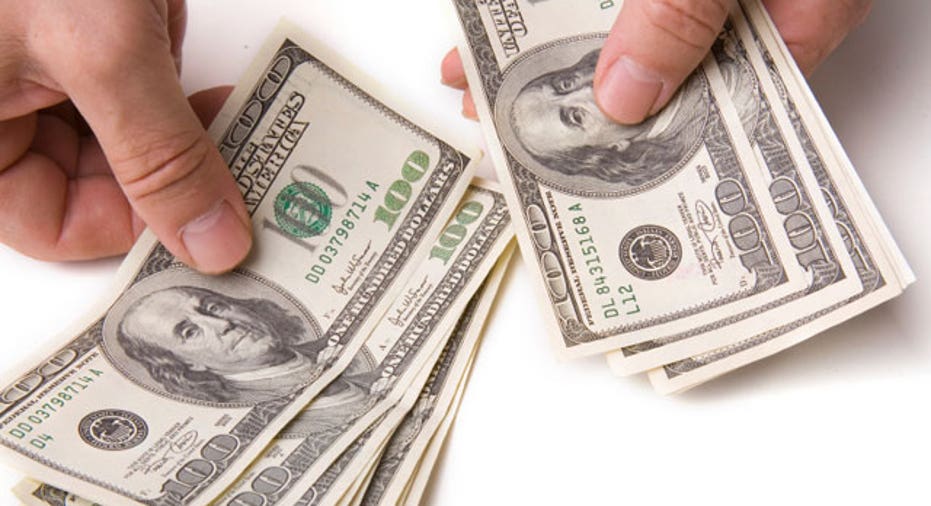Should You Think About Trading Currencies?

If you've been thinking of ways to trade the falling euro (EUR), or any other currency, you might consider the foreign exchange market. Forex, which is open 24 hours a day and five days a week, is the world's most traded financial market and also the most liquid. This means you can quickly get into and out of a trade.
You also have a choice between trading in the currency futures market, which is a physical exchange, or the forex "spot" market, where you trade over the counter with a broker. Many beginners trade in the spot market because you need so little upfront money.
So if you're certain that betting on a certain currency is a sure thing, see what's involved.
The basics
Currencies are always traded in pairs. In other words, you buy one currency and sell the other. For example, you could sell the euro against the dollar (EUR/USD). In this case, you short the euro (you believe the euro will go down) but long the dollar (you believe the dollar will go up). Conversely, you could buy, or go long, the euro and short the dollar. Because there are 28 major pairs with eight major currencies, you have many choices.
If you're a beginner, stick with the major currencies you know. "It's recommended you start off with a liquid pair, like the euro or dollar," says Tim Bourquin, co-founder of TraderInterviews.com and co-founder of Traders Expo and Forex Trading Expo. "Don't start trading the Indian rupee versus the Iraq dinar, which has no liquidity and little information."
Currencies move up and down by percentage in points, or pip, which is one-hundredth of 1 percentage point. When trading a dollar-based currency, one pip equals $10. Don't get fooled by the small increments. Because of leverage, you can theoretically make or lose $3,000 or more in a day, depending on the size of your account.
The benefits
One of the benefits of trading currencies is the high leverage. Unlike in the stock market, where you can buy securities on margin with 2-to-1 leverage, in the currency market, you're allowed 50-to-1 leverage. Therefore, for every $1 you invest, you control $50 worth of currency. That's good, right?
"The high leverage can work for you or against you," says Michael Archer, author of "Getting Started in Currency Trading: Winning in Today's Hottest Marketplace."
Archer says it's not unusual for new traders to plunk down $500 (and control $25,000 in currencies), and then lose it all. Why? Because they don't understand how leverage works. "Just because you have 50-to-1 leverage doesn't mean you have to use it," Archer cautions. Although it is possible to lose more than your initial investment, most online brokers close your position before that happens, Archer says.
What are the other benefits of trading currencies? John Jagerson, co-author of "All About Forex Trading," says that currency trading "can be an extremely low-cost, efficient way for talented, short-term investors to make profits. It's a fast market with super-tight spreads with no commissions." In fact, most forex brokers don't charge commissions, but they make profits off of the spreads between currencies.
The risks
One of the risks of forex is that it's not transparent. "Currency traders are literally trading against the pros, who have control over where and when the order gets filled," says Jagerson. "Nine times out of 10 it won't matter, but there is a conflict of interest."
The solution, Jagerson says, is to stick with big-name U.S. brokers, which are under stricter regulatory control. The ones you should avoid, he says, are brokers who operate in relatively unregulated territories such as Russia or Cyprus. "These brokers might pop up and then disappear with all of your money," he warns.
Bourquin agrees. "If you stick with the big-spot forex traders like GFT, Forex.com and FXCM, they have enough volume so they don't need to mess with the client's pricing to make money." In addition, Bourquin says, the National Futures Association, or NFA, started cracking down on rogue brokers, which forced a few to leave the country.
Another problem, Jagerson says, is that people don't appreciate the risks of currency trading. "I tell aspiring traders to paper trade as long as possible in adverse market conditions," he says. Paper trading enables novices to mimic the trading process without actually laying out any cash.
The most common reason for failure, Jagerson says, is people trade too large and too inconsistently. "Their analysis is often good, but their money management is so bad it sabotages them."
Often, the biggest problem is with the trader. "Many people who enter the currency market have crazy expectations, such as making 5% to 10% a month or more," says Jagerson. "I don't know where they get those ideas."
Trading currencies is more complex than many people realize. "Some firms have entire departments with professionals that have been trading currencies for 30 years," says Bourquin. "It's not just earnings or how many widgets XYZ is selling. Currencies involve complicated issues about interest rates and debt in Europe and Greece. People need to study that."
Getting started
Before you start trading currencies, experts suggest you get an education, although with some caveats. "You have to be careful where you get your education," says Bourquin. "The Internet is filled with get-rich programs. There's no reason to pay $10,000 for a forex training program when most brokers offer the basics on their websites for free."
Trading currencies is similar to trading stocks in one way: money management. "My suggestion is to start small and go slow," says Archer. "Take six months to a year before you put real money on the line. Find a fairly simple trading technique, and develop trading rules that work for you."
And learn to sit on your hands instead of constantly trading, he adds. "Wait for the right opportunity."



















